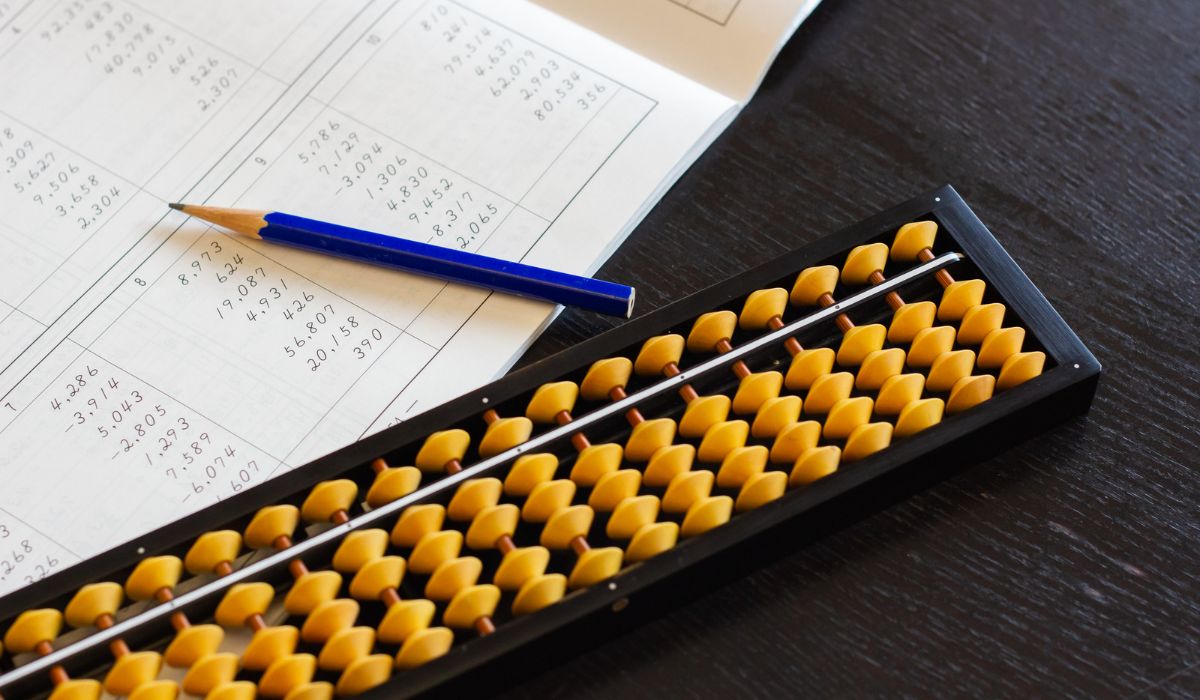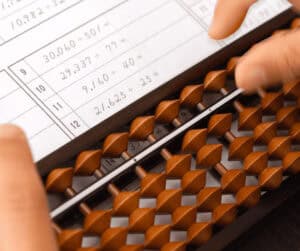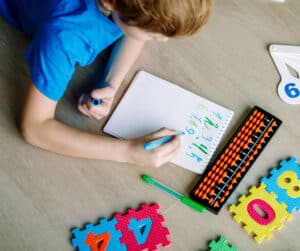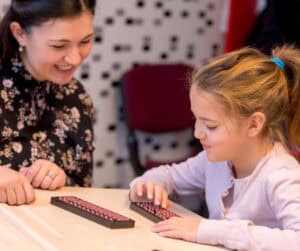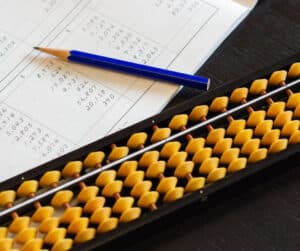Abacus Lessons Online: Whole Brain Development Program
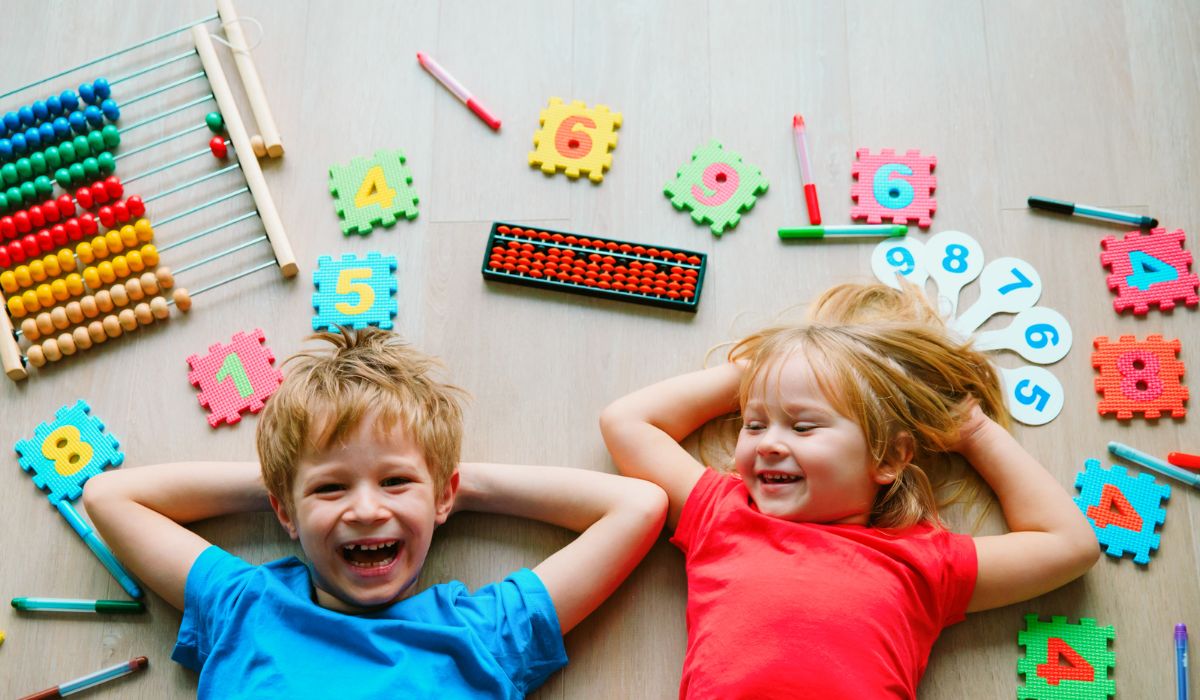
ABACUS Full Form: Abundant Beads Addition Calculation Utility System.
Abacus provides countable beads for children to visualize numbers on a base-10 system.
Children learn Abacus by manipulating those beads to perform arithmetic calculations such as addition, subtraction, multiplication, division and more.
Our Online Abacus Classes helps to promote whole brain development as Abacus requires use of both the left and right side of the brain to solve a problem. The right side of the brain is responsible for creative thinking and photographic memory whereas the left side of the brain is responsible for logic and analytical thinking.
When kids use Abacus to do the mathematical calculations they visualize the tool to move the beads mentally so their right side of the brain gets exercise. And when they do the mathematical calculations such as addition, subtraction and multiplication their left side of the brain gets exercise.
Abacus promotes exercise of both left and right side of the brain together which promotes a balance between the two sides of the brain and leads to a better overall cognitive development. Abacus improves mental math skills as it requires the user to think about the problem and visualize the beads as they do calculations.
Practicing Abacus regularly helps deeply to improve memory as the user must remember the position of the beads as they move them around. Abacus classes can be a fun and engaging way to keep students interested and motivated in learning maths.
Why Choose Our Online Abacus Lessons?
Brain Development
The visuals and use of abacus tool kindles creative thinking, improves ability to use the left and right side of brain simultaneously which helps in overall brain development.
Improves Memory
Improves the skills of Visualization: The practice of visual calculations helps improve the photographic memory and observation skills.
Improves Focus
Children in today’s digital era have a major problem of constant distraction of stimuli. Learning Abacus helps them practice visual calculation which improves focus.
Speed & Accuracy
The techniques of Abacus also improves the speed of doing mathematical calculations which helps in getting better results.
Love for Maths
Simple techniques and visualization skills help kids score well in maths exams which removes fear and develops love for the subject.
Builds Self-Confidence
Improved ability to do faster and accurate calculations builds confidence in the kids which improves their overall performance and makes them self- reliant.
Invest Beyond Math: Life Skills through Abacus Lessons Online
Abacus course online instils valuable life skills that go beyond arithmetic. In a group activity, the child develops teamwork and communication. The focus developed for calculations improves the child’s concentration and discipline. These abilities are not only required for academic development but also for adjusting to social relations and other future affairs. One learns how to visualise situations and develop critical thinking, thus developing resilience and adjustability.
Your Journey Begins Here
Join a community of growth, creativity, and learning. Mynsha offers a warm environment for its students and parents. Sign up today for your FREE demo and see what the power of interactive learning can do. Join us in building an essential foundation with math and beyond that inspires your child to excel both in and out of the classroom.
Join our abacus training online today!
Course Features
Study Material
Physical books and tools included, with delivery.
Certificate
Certificate upon completion of each level and the entire course.
Video Gallery



What You Will Learn
- Understand the Abacus tool and how to use it for calculations
- Understand the right style of using the Abacus tool with fingers
- Able to quickly perform two/three/four digit addition and subtractions
- Increase in memory power
- Able to perform calculations mentally, without using the Abacus tool
- Improved cognitive skills and focus
- Ability to perform calculations quickly and correctly
- A solid maths foundation
Course Content of Our Abacus Classes for Kids
- Introduction to bead values and counting on the Abacus
- Addition and subtraction up to 3-digit numbers without formulas
- Addition and subtraction of 1-digit numbers with introduction to Big friends, small friends, and mixed friends formulas
- Practice of visualization (ANZAN)
- Addition and Subtraction of 2-digit numbers and up to 6 numbers in a row
- ANZANS of all formulas with 1-digit numbers
- Addition, Subtraction up to 3-digit numbers covering all Abacus formulas
- Visualization up to 2 digit numbers
- Multiplication up to 3D by 1D
- Visualization up to 2D addition and subtraction up to 5 numbers
- Multiplication up to 3D by 3D
- Visualization up to 3D addition and subtraction
- Division upto 4D dividends by 1D divisors
- Visualization of multiplication of 1D multipliers and complex addition subtraction
- Decimal addition and subtraction
- Division up to 2D divisors
- Visualisation of Division by 1D divisors
Practice of all basic operations together up to 5D answers including
- Decimals
- Addition Subtraction up to 5D numbers
- Multiplication upto 4D by 4D
- Division by 2D
Note
Physical books and tools provided, inclusive in the price including delivery
Course Pricing
Personal
- One to One session
- Eligibility: 5 to 14 yrs
- Course level 0 to 8
- Each level takes approx. 3 months
- 2 sessions per week of 1 hour each
- Makeup sessions available*
- Weekend/weekday time slots
- Tool & physical books provided
Why Mynsha
Experienced Tutors
All Mynsha tutors have qualification, experience and above all the passion to impart their knowledge which sets them apart from others.
Live Online Classes
Two live interactive sessions with tutor per week. Fun filled abacus classes with regular assignments, quizzes, games and Q&A sessions.
After Class Live Support
Now do not need to wait for the next class for your queries. Dedicated communication channel to clarify your doubts with your tutor.
Regular Progress Updates
Regular parent-tutor interaction and email updates to let the parents have an opportunity see their kid’s progress and ask any related questions.
Personal / Group Classes
We offer both 1:1 classes or group classes of max batch size of 4. This provides individual attention to each student in the virtual classroom and time to resolve their queries.
Physical Course Material
We provide physical books and tool to play with beads to promote brain development. Course material delivered at your doorstep.
Feedback

My son has started Abacus with Mynsha 4 months back and I am so happy to see his developing interest in numbers and calculations

The best class in terms of on-going support. My daughter looks forward to each class and that’s what matters to me

My daughter really likes Abacus, I am surprised to see her love for maths and focus has increased after joining Abacus classes.

